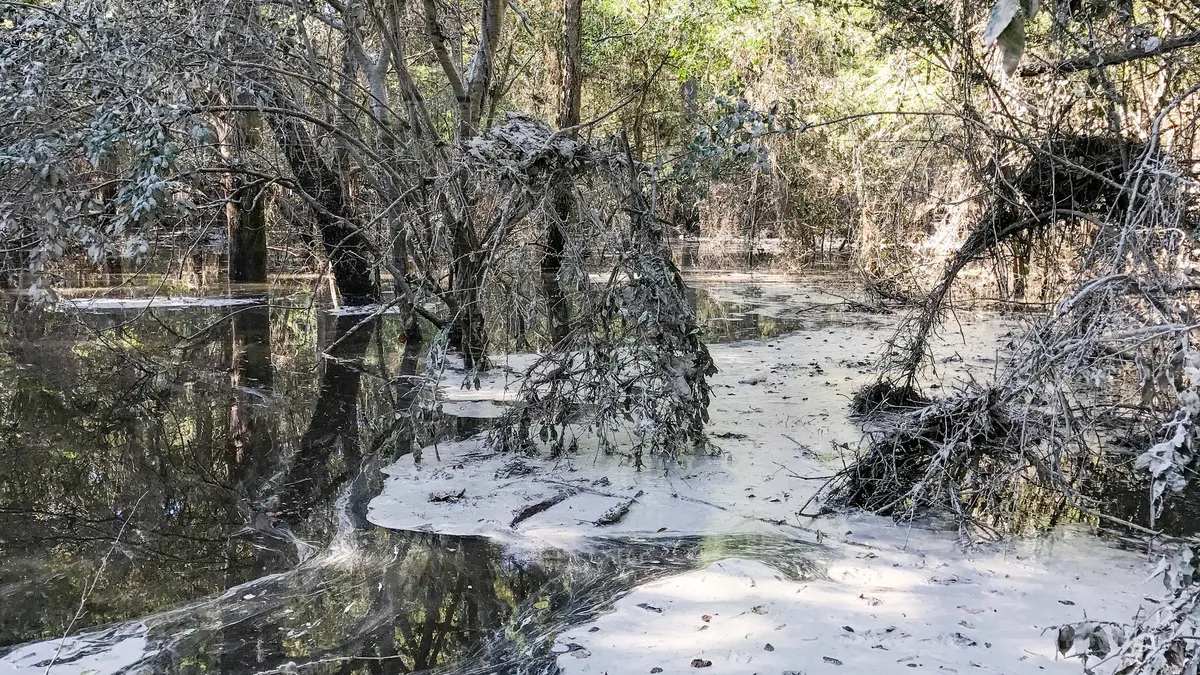Dive Brief:
- Duke Energy will compensate homeowners within a half mile of North Carolina coal ash plants, according to a report by the Associated Press, offering financial payments to compensate for lost water wells and the cost of tying in to municipal water supplies.
- Duke is still computing how much it will offer affected homeowners, but plans to finalize those numbers in the coming weeks.
- Duke has been supplying bottled water to residents who believe their wells may have been contaminated by the coal waste. Last month, the utility revealed plans to excavate 34 basins and cap another 18 basins in place in North Carolina.
Dive Insight:
Duke's offers aim to compensate homeowners for potentially falling property values and the cost associated with lost water wells and new municipal service.
In November, Duke revealed its plan to close 36 coal ash basins regulated by the federal Coal Combustion Residuals rule, outlining a process that would leave about 70% of the waste capped in place. The plan follows a law signed by North Carolina Gov. Pat McCrory (R) this summer requiring Duke to clean up coal ash pits at half of its sites without having to excavate the waste, while supplying clean drinking water to residents near the ponds by 2018.
According to AP, Duke has expanded the area in which it is offering bottled water to residents, essentially doubling the program.
Duke's coal ash ponds have been under scrutiny since a pipe rupture in 2014 dumped waste into the Dan River. In 2015, the company pled guilty to nine misdemeanor federal violations of the Clean Water Act committed by three subsidiaries in the spill, and paid $102 million in fines and penalties. This fall, Duke and the North Carolina Department of Environmental Quality reached a settlement calling for the utility to pay a $6 million fine related to the spill.
In October, the utility confirmed it was dealing with another coal ash spill at its retired H.F. Lee coal plant in Goldsboro, North Carolina, after flooding from Hurricane Matthew.
Clarification: The post was updated to clarify states about Duke's compensation to property owners and litigation.















